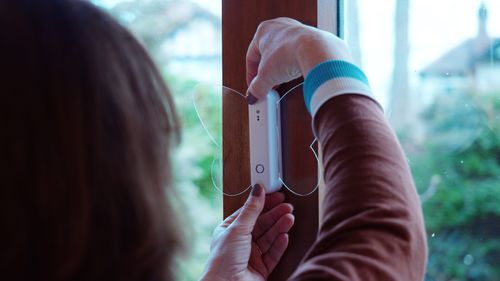Scientists Tell Parents About The Perils of Keeping Kids Indoors In Summer Holidays
A Professor from Imperial College London has said that parents should be advised that
indoor air can be up to five times more toxic than outdoor air - ahead of the six weeks
school holiday.
Startling data has been released from The Department for Environment in their Draft
Air Quality Strategy showing that indoor air features higher levels of carbon monoxide
and PM2.5 as a result of activities such as cooking, devices and cleaning products.
The research has shown poor indoor air quality can lead to a deterioration in brain
functionality, infertility and in later life, dementia.
Imperial College London’s Environmental Research Group has examined a large
range of research published from the past ten years including the Royal College of
Physicians report !Every breath we take: the lifelong impact of air pollution", showing the
impact high levels of C02 can have on brain health.
Nick Munro, Visiting Professor of Design at Imperial College London and a parent of two
children, commented: “The summer holidays present families with a range of issues -
including having to juggle childcare with working from home; restrictions on days
out because of the cost of living crisis; and for many, their location in city centres
with little access to green spaces. This means that many children will be forced to
dwell inside the home for longer periods.
“From our research we have found the inside air quality in the average family home
can be up to 2-5 times more toxic than outdoor air and it’s important for parents to
be aware of what the air quality is and educate themselves on exactly what they can
do about it.”
Prof. Munro is the co-founder of Sapho by Butterfly Air, a new indoor air quality
monitor designed and created by Ali and Nick Munro.
Linking to the homes’ wifi network and a smartphone app, Sapho"s highly engineered
technology measures carbon dioxide, humidity and temperature – 3 of the most important
air quality metrics for good health.
The butterfly inspired tech design uses colour to communicate. Its wings change
colour to indicate when the air quality is; !good’ #blue), !moderate‘ (green) or !needs
attention’$(amber).
Their Kickstarter campaign which launches today on July 19th aims to get Sapho into
production later this year, in the hope of introducing Butterfly tech to homes, schools and
care settings across the UK - transforming the lives of families indoor air quality for good.
The innovative device should be installed at breathing height, can be attached by
command strips or one screw into a wall and one device can cover 100m2.
Manufactured in the UK using a specially formulated recycled plastic, Sapho is
powered by 2xAA which provide continuous monitoring for up to 18 months before
needing to be replaced.
To learn more about Sapho and the suite of Butterfly products, go to: http://butterfly-
air.com/
_____________________________________________________________________
Prof. Nick Munro’s Top Five Tips To Improve Air Quality In You Home This Summer
1. Fresh Air is a Game-Changer!
Open your windows strategically to let in the fresh breeze. Better air circulation
helps remove indoor pollutants, ensuring cleaner and healthier air for everyone at
home.
2. Balance Your Humidity Levels
Maintain optimal humidity levels for good air quality. Aim for around 50% humidity
during summer and 30% during winter to prevent mould growth and create a
healthy living space.
3. Greenery for Cleaner Air
Indoor plants, such as aloe vera, rubber plants, and spider plants, are natural air
filters. They remove pollutants and improve indoor air quality. Get the whole family
involved in planting and make it a fun summer activity!
4. Step into a Cleaner Home
Keep your home cleaner by encouraging everyone to remove their shoes upon
entering. This simple step helps prevent dirt, dust, and outdoor pollutants from
being tracked inside, maintaining a healthier environment.
5. Turn away from aerosols
Switch to cream cleaning products and start to make a change away from aerosol
products which blast toxic particles in the air.
ENDS
Notes to editor:
Press contact: Jennifer Hodgson work@wearelaurel.co.uk 07802 794 152
Website: http://butterfly-air.com/
Instagram: @butterfly_airquality
Email: enquiries@butterfly-air.com
